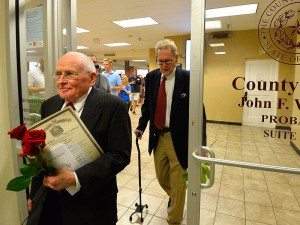I don’t often comment on politics, and when I do, I’m more likely to talk about the dangers that contemporary American politics pose for Christian witness than to engage in partisan debate.
The current situation in the Southern Baptist Convention’s Ethics and Religious Liberty Commission is a case in point.
Theologically, ERLC President Russell Moore is a straight-up-the line Southern Baptist. On the controversial issues within the denomination, he never wavers from the orthodox Southern Baptist answers. He’s an inerrantist, he affirms six day creation, and he’s a complementarian, to cite just a few examples.
Politically, he has firmly opposed abortion and same-sex marriage, playing a leading role in defending Christian ethics in the public square.
Recently, he’s gotten into hot water with a lot of Southern Baptists for his opposition to Donald Trump.
There is nothing that he has called Trump out for doing that Southern Baptists have not long condemned. Trump has bragged about adultery, and about relations with women that at the very least verge on sexual assault. He is uncharitable and vindictive toward his critics. He is vulgar, and has very little concern with the truth of his assertions. There is no reason to believe his pro-life convictions are based on much more than political calculation. He is the sort of candidate the religious right was created forty years ago to oppose.
Moore has made clear that he’s not attacking any Christian who decided, after carefully weighing their options, that Trump was the lesser of two evils, and cast their vote for him. There is a “massive difference,” he says, between them and those Christians who sought to excuse Trump’s immorality or confuse the definition of the Gospel to make Trump seem like a serious Christian.
In the Old Testament, again and again, the prophets call God’s people to radical holiness, and the people, again and again, put their trust in princes and political alliances. That drama is being played out again today.
As a student of that history, I admire Russell Moore’s prophetic boldness in continuing to defend the Gospel, even when it is out of season.
I also hope, for his sake, that this particular “old, old story” doesn’t repeat itself among Southern Baptists today.
Photo credit: ERLC.







 In a
In a 
 Over at the Gospel Coalition, Thabiti Anyabwile has a thoughtful post asking whether
Over at the Gospel Coalition, Thabiti Anyabwile has a thoughtful post asking whether
You must be logged in to post a comment.